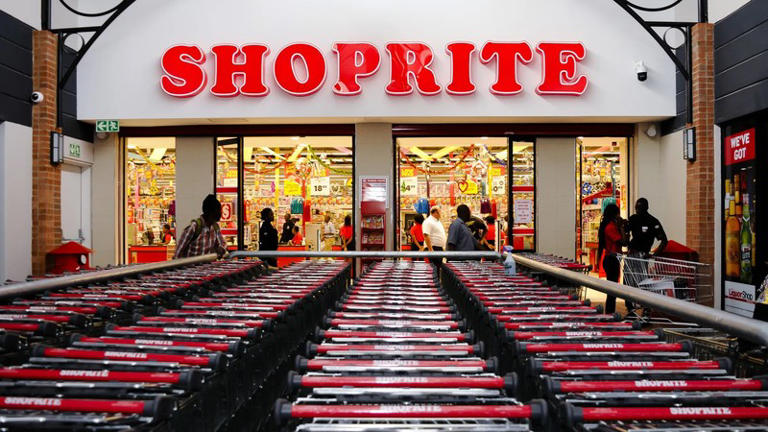Shoprite’s exit from Malawi, Ghana: A pragmatic response to economic struggles

Africa’s biggest retail store, Shoprite. Photo Credit- Business Tech
Shoprite Holdings, Africa’s largest food retailer, has executed a calculated withdrawal from its operations in Malawi and Ghana, driven by a confluence of economic pressures that rendered these markets unsustainable. Citing high inflation rates, volatile currencies, dollar-pegged rental costs, and prohibitive import duties, the Johannesburg-based giant is streamlining its portfolio to fortify its core South African operations. This move, announced as part of the group’s 2025 financial results, follows earlier exits from Nigeria, Uganda, and the Democratic Republic of Congo, signaling a broader retreat from high-risk African markets. CEO Pieter Engelbrecht highlighted the strain on consumer disposable income, noting, “Our customers remain pressured on a number of fronts.” With a 25-year legacy in frontier markets now curtailed, Shoprite’s policy shows a disciplined focus on profitability and operational efficiency, raising questions about the viability of pan-African retail expansion in an era of macroeconomic instability.
In Malawi, Shoprite’s divestment involves transferring five stores to local operator Karson, rebranded as Shopwise Trading Limited, effective June 2025. The agreement prioritizes employee welfare, mandating job retention or equitable severance packages, with Karson required to submit quarterly compliance reports for two years to ensure adherence. In Ghana, the exit is more immediate, with a warehouse and seven stores already divested, concluding Shoprite’s presence in a market plagued by foreign exchange volatility. These decisions reflect a strategic pruning of underperforming assets, allowing Shoprite to redirect capital toward its South African stronghold, where it commands a 20% market share. The broader African retail landscape, characterized by inflation averaging 20% in some regions and currency depreciation (e.g., Malawi’s kwacha down 44% since 2023), has eroded margins, with Shoprite’s non-South African stores contributing just 8% to group revenue but disproportionate operational risk.
Financially, Shoprite’s performance remains robust, with group sales for the 52 weeks ended June 29, 2025, surging to R250 billion, a R20.6 billion increase year-on-year. The flagship Supermarkets RSA division, encompassing Shoprite and Usave, delivered R6.5 billion in growth (5.9%) from a R110.1 billion base, while the on-demand delivery platform Sixty60 posted a stellar 47.7% sales jump to R18.9 billion, underpinned by 94% on-time deliveries and a 96.8% order fulfillment rate. Engelbrecht emphasized disciplined pricing, with sell inflation kept below 2% on a volume-weighted basis, boosting gross margins despite a 6.5% national inflation rate. However, the group’s African exits highlight a stark reality: while South African operations thrive, frontier markets face structural challenges, high logistics costs, import reliance, and low consumer purchasing power, that defy scale.
The implications of Shoprite’s retreat extend beyond its balance sheet. In Malawi and Ghana, the loss of a retail giant could disrupt local supply chains, with Karson’s smaller footprint unlikely to match Shoprite’s scale, potentially driving up prices for consumers already grappling with 25% inflation in Malawi and 22% in Ghana. In South Africa, reinvestment in Sixty60 and store modernization could intensify competition with Checkers and Woolworths, potentially stabilizing prices for shoppers (Stats SA notes grocery inflation at 4.2% in Q2 2025). However, rural communities reliant on Shoprite’s low-cost Usave model may feel the pinch if expansion slows. The group’s cash dividend and sustained job creation, adding 1,200 jobs in 2025, signal confidence, but the African retreat raises a cautionary flag for multinationals eyeing the continent’s 1.4 billion consumers amid economic fragility.
This strategic contraction positions Shoprite to weather global uncertainties, leveraging its South African dominance (over 2,900 stores) to drive innovation in e-commerce and supply chain efficiency. Yet, it also exposes the limits of Africa’s retail promise, where structural barriers outstrip growth potential. As Engelbrecht’s team doubles down on a market where 80% of revenue flows, the question looms: can Shoprite’s leaner footprint spark a new growth engine, or will it signal a retreat for other retailers eyeing Africa’s frontier? For now, the numbers; R250 billion in sales, a 47.7% Sixty60 surge suggest Shoprite’s bet on home turf could redefine retail resilience in an unpredictable continent.




